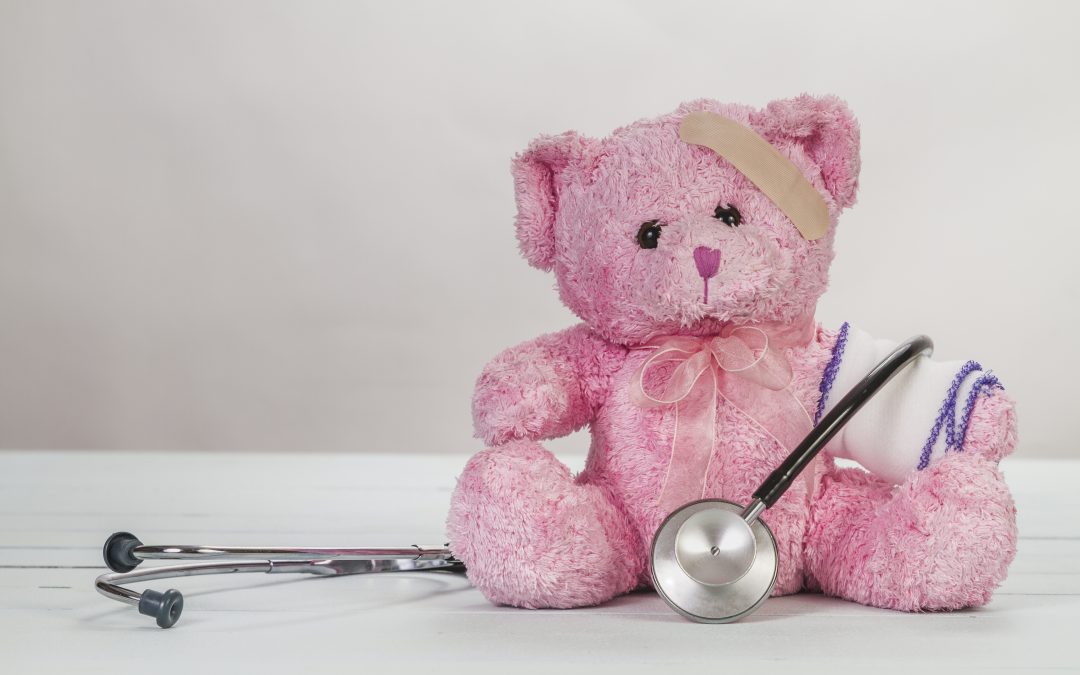Fever is about the most common reason why many parents bring their children to the doctor.
The forehead, neck, or abdomen ( tummy) are the common sites that parents feel for fevers on their children. To check the severity of a fever, you can take your child’s temperature at four spots on the body. This will give an accurate reading of your child’s temperature.
Every home should have a thermometer preferably a digital one that can be purchased at most Pharmacies or Drug Stores.
How to take your child’s temperature.
Rectal Route
A digital thermometer is inserted in petroleum jelly and inserted half an inch into the rectum. Most digital thermometers will let out a beeping sound once the body temperature has been read. This method produces the most accurate result and is the preferred method for infants (children less than one year of age)
Mouth/ Oral Route
The thermometer is placed under the tongue and the temperature is read. This method also produces accurate results and is the suggested route for older children.
Armpit/Axillary
The thermometer is placed in the armpit and the result is read after the thermometer beeps. This route is easier than oral or rectal route but less reliable.
Ear/Tympanic
A special thermometer is inserted in the ear for a few seconds and the temperature is read. Despite the quick ease, wax build-up or incorrect positioning can affect its accuracy.
Body Temperature and Fever
Normal body temperature varies throughout the day, a temperature of 37.6C or 98.6F is considered normal. Temperatures are usually lowest in the mornings and highest in the afternoons. Normal temperatures also differ from person to person. Temperatures above the following are generally considered a fever. A temperature of greater than 38C or 100.4F either rectally or orally is considered a fever or an axillary temperature of 37C or 99.4F.
“fever is not synonymous with Malaria”
What causes fever?
Fever is usually a sign that your child is fighting an infection which could be viral, bacterial or parasitic in nature. Fever by itself is not a bad sign because it tells that your child is trying to fight off some kind of infection. Fever is not synonymous with Malaria. Never start your child on antimalarials just because he or she felt warm to you. Fever alone does not necessarily require medications or a visit to the doctor’s. There are exceptions to this though. Your child must be seen immediately if your child has a fever and;
- Less than 3 months of age,
- Has a stiff neck;
- Appears lethargic or unresponsive;
- Vomits persistently;
- Is irritable and cannot be consoled;
- Has a seizure;
- Has a severe headache or stomachache;
- Has difficulty breathing;
- Has a fever that lasts longer than 72 hours;
- Has a fever that goes away for more than 24 hours and then returns.
Safely Treating Fever
There are some steps you can take at home to bring a fever down.
Medications: Over the counter, antipyretics like paracetamol and Ibuprofen are safe and effective for lowering your child’s temperature. Never give aspirin to your child because of potential risks of Reye’s syndrome which is a rare but serious illness.
Fluids: Encourage your child to drink a lot of fluids to help prevent dehydration and also to help cool the body down. Avoid carbonated and caffeine-containing drinks. If your child is refusing water, diluted fruit juices or iced lollies are also good substitutes. ORS can also be given.
Cool off: Dress your child in loose-fitting clothes in a cool room. Give your child a sponge bath with lukewarm water. Do not bathe your child in ice-cold water, it is extremely uncomfortable and painful. If your child has the chills, you can cover with a light cloth but remove once the chills have passed.
Do not start your child on antimalarials or antibiotics unless your child has been seen and checked by a doctor. Antimalarials will only work if your child has malaria, same as antibiotics, they are only effective on bacterial infections. Avoid self-medicating to prevent resistant strains of these organisms from breeding.
Above all, good hand washing is the best way of preventing the spread of a lot of germs and diseases.
For more information about our practice or to receive answers to your questions, you can reach us on our Nurse’s hotline at 0817884 2163. There is also more information available on our website at www.pediatricpartnersng.com.




Recent Comments